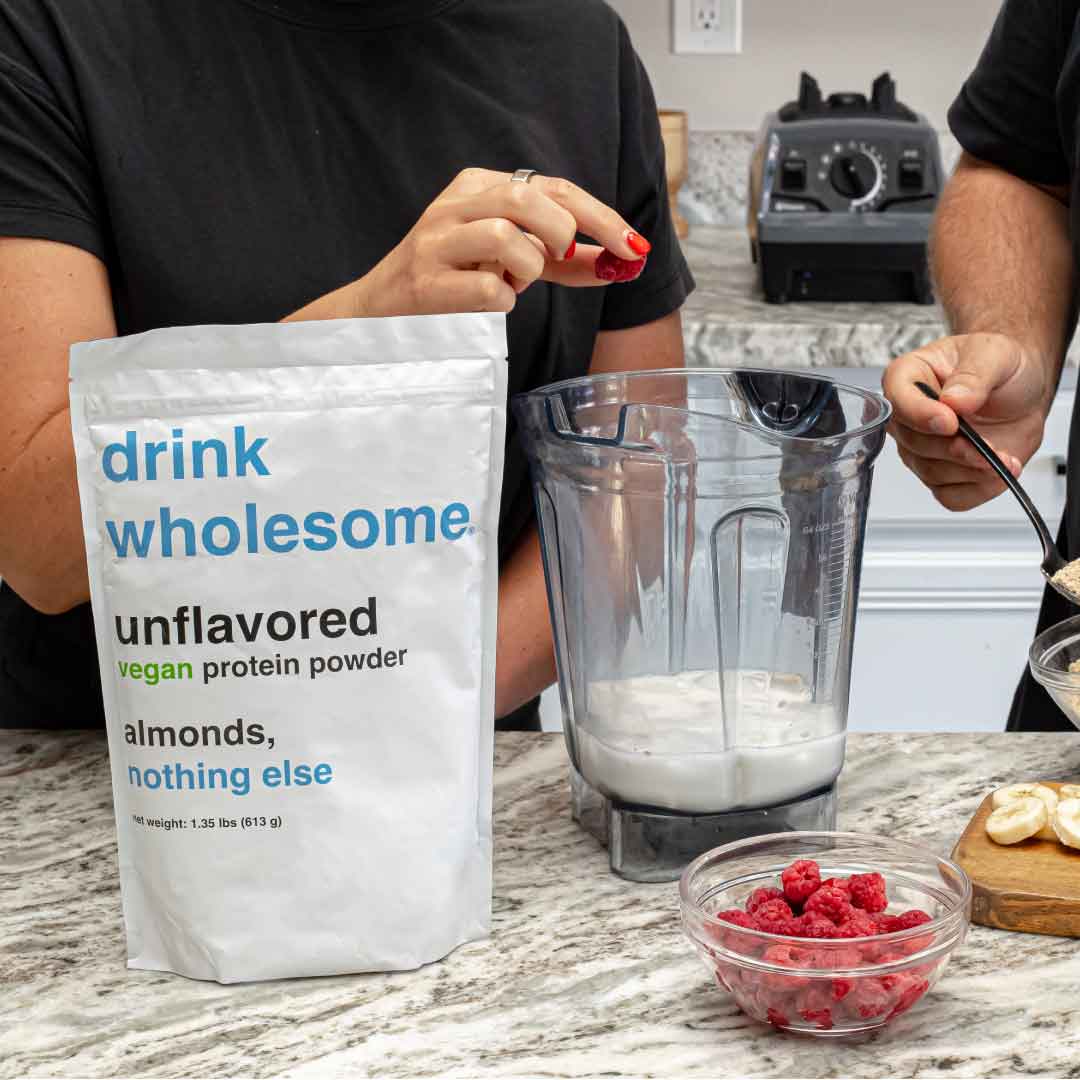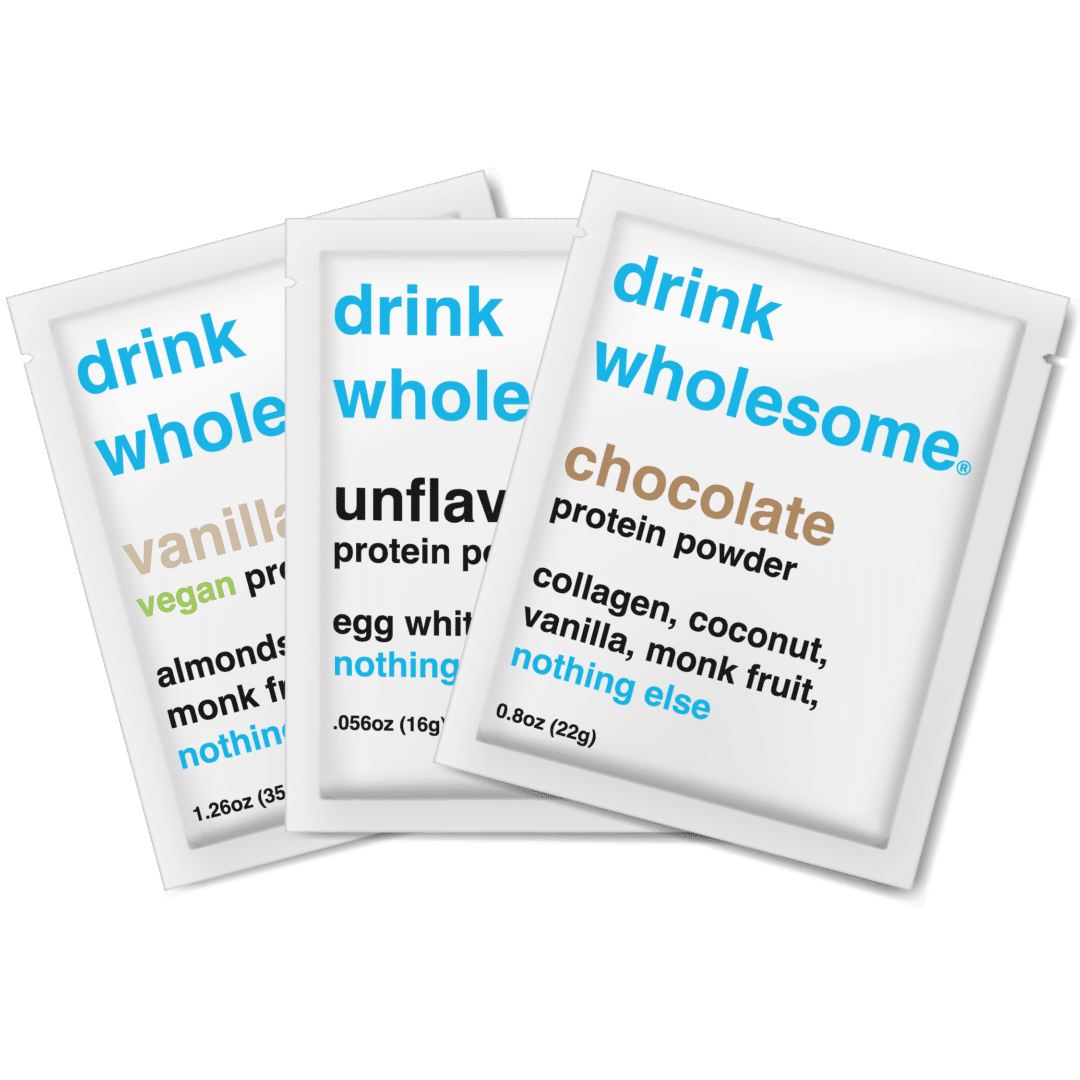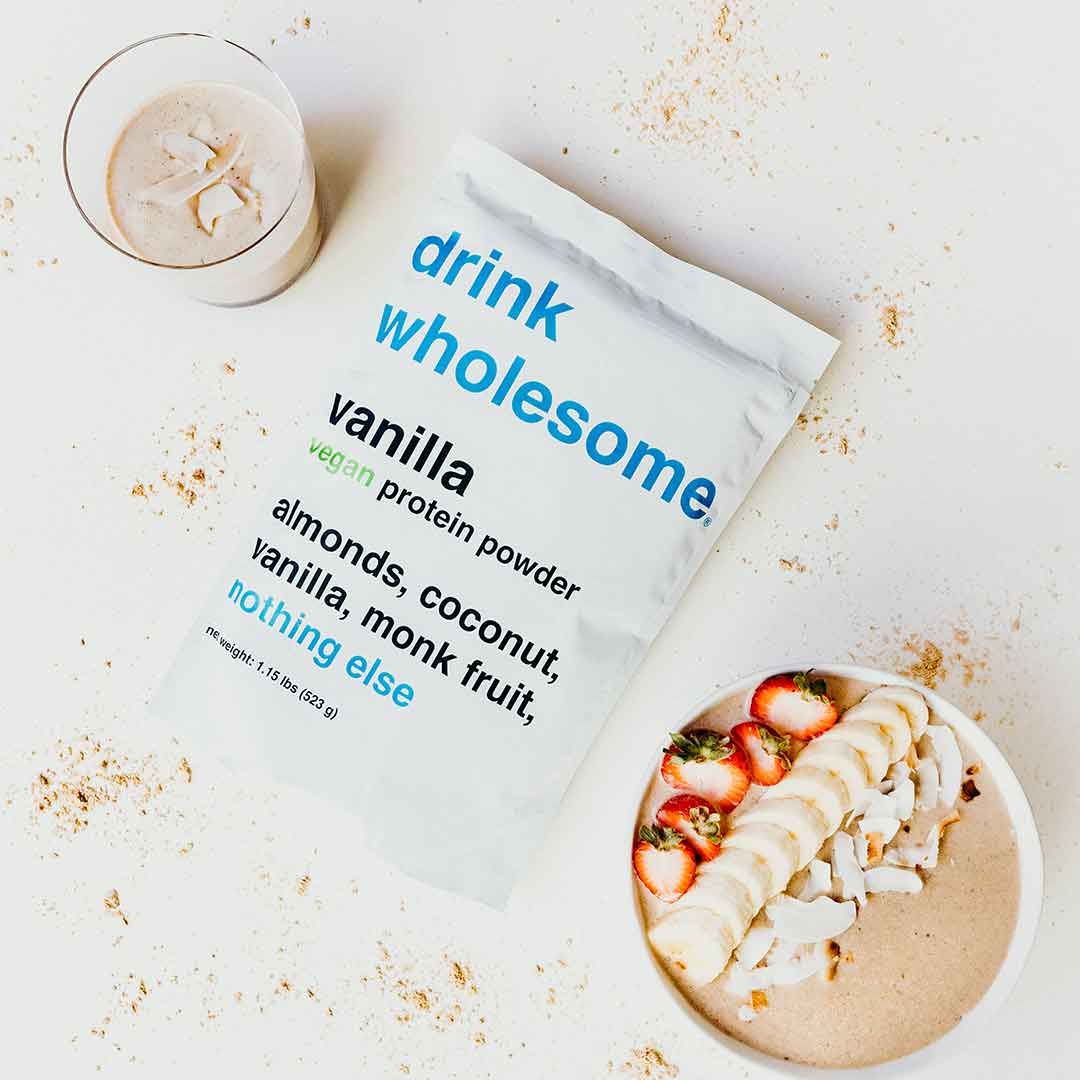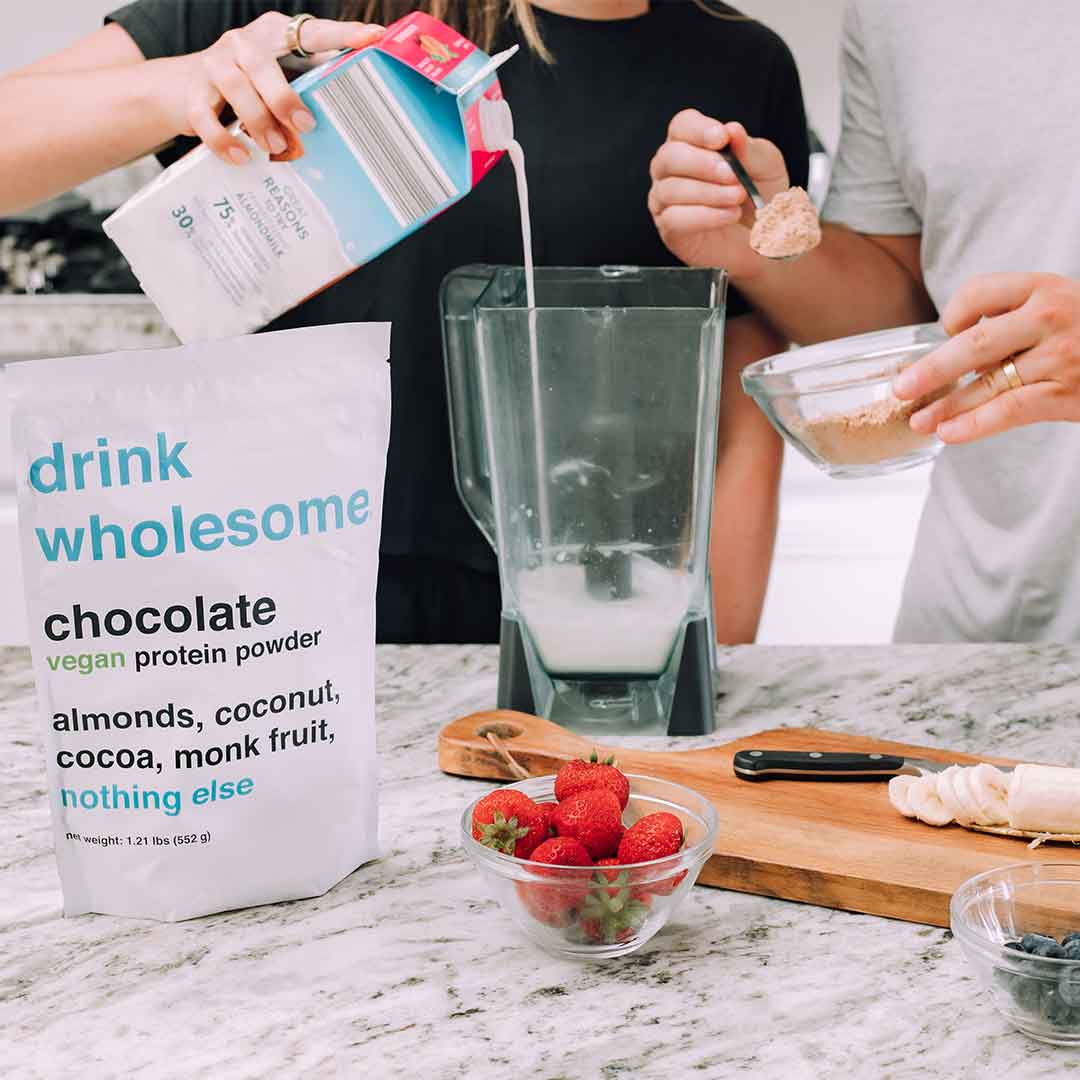What is the best heart healthy protein powder?
What is the best heart healthy protein powder? Learn how to find a protein powder that supports your heart health.
Written by Jack Schrupp & endorsed by Baylee Reller, RDN
How to support your heart health with protein powder
Is protein powder heart healthy?
If something is heart healthy, it helps prevent or reduce the risk of cardiovascular diseases (CVD), a group of disorders of the heart and blood vessels. CVD is the leading cause of death in the United States, taking a life every 33 seconds. According to the Centers for Disease Control and Prevention (CDC), the leading risk factors for CVD are high blood pressure, high low-density lipoprotein (LDL) cholesterol, diabetes, smoking and secondhand smoke exposure, obesity, unhealthy diet, and physical inactivity.
As you might imagine, research has demonstrated an intimate relationship between diet and CVD. What you eat, or do not eat, can raise or lower your risk of developing CVD.
Given that diet is the cornerstone of CVD prevention, protein powder should be taken into consideration when talking about heart health. Protein powder is not typically thought of as a heart healthy food, but it can be used to promote weight loss, which lowers your risk of developing CVD. That said, many people consume protein powder every day, so protein powder ingredients that are not heart healthy should be avoided.
What should you avoid?
Several common protein powder ingredients/nutrients may have adverse effects on heart health when consumed in excess. Here are few of the ones to avoid:
– Added sugars: Excessive consumption of added sugars can contribute to weight gain, diabetes, and heart disease. Keep an eye out for additives like maltodextrin too, as they affect your blood sugar levels like sugar.
– Artificial sweeteners: Some studies suggest that artificial sweeteners like acesulfame potassium and sucralose may have negative effects on cardiovascular health.
– Trans fats: Trans fats can raise LDL (bad) cholesterol levels and lower HDL (good) cholesterol levels, increasing the risk of heart disease.
– Sodium: Excessive sodium intake can lead to high blood pressure.
It is important to read the ingredient list and nutrition label carefully when choosing a protein powder.. If you have specific concerns about heart health or any other health condition, consult a healthcare professional or registered dietitian.
What should you prioritize?
Certain protein powder ingredients are beneficial for heart health. The ingredients that tend to have the most benefits are plant-based ones.
Plants contain fiber, which helps lower cholesterol levels and regulate blood sugar levels. They are also rich in antioxidants, phytonutrients, and polyphenols that help reduce oxidative stress and inflammation, two risk factors for heart disease. Some plants, like nuts and seeds, also contain healthy fats, which are associated with reduced inflammation and improved heart health.
Can protein powder cause heart problems?
Protein itself has not been associated with heart problems, but you should still be mindful of what is in your protein powder, especially if you have a pre-existing heart condition.
One thing to look out for is caffeine. Some protein powders contain caffeine, which can have adverse effects on heart health when consumed in excess. Too much caffeine can cause:
Elevated heart rate and blood pressure: High doses of caffeine can temporarily raise heart rate and blood pressure, which may be concerning for individuals with certain heart conditions or hypertension.
Disrupted sleep patterns: Consuming caffeine late in the day can interfere with sleep quality and duration, which may indirectly affect heart health as inadequate sleep is linked to an increased risk of heart disease.
Arrhythmias: In sensitive individuals, high doses of caffeine may trigger irregular heartbeats or arrhythmias, although this is relatively rare.
Many protein powders are naturally-caffeinated because they contain ingredients like coffee, cocoa, or matcha. These products contain low to moderate amounts of caffeine.
Some protein powders, especially metabolism-boosting or thermogenic products, are formulated with caffeine-rich ingredients like green tea extract. These products tend to contain high amounts of caffeine.
What is the best heart healthy protein powder?
As you just learned, a heart healthy protein powder must be a) low in added sugars b) free from artificial sweeteners c) low in trans fats and d) low in sodium. It should also be made from plant-based ingredients. These are just the low hanging fruit, however. A truly heart healthy protein powder needs to be made from a short list of simple ingredients.
Protein powders that contain added emulsifiers, thickeners, flavors, and other additives are bad for your gut health. In fact, they alter the composition of your gut microbiome – the collection of microorganisms living in your gut. What does this have to do with your heart?
Accumulating evidence has revealed that the gut microbiome plays an important role in human health and disease, including cardiovascular diseases. Changes in the composition of gut microbiota have been linked to pathologies such as atherosclerosis, hypertension, and. heart failure, In other words, the additives in your protein powder may be increasing your risk for cardiovascular diseases.
This is why you need a protein powder like drink wholesome. Our protein powders were formulated to be as gut-friendly as possible, using whole food protein sources, natural sweeteners, no additives whatsoever. Our vegan protein powders are also made with almonds, which are one of the most heart healthy foods out there. Keep reading to learn more.
drink wholesome is the best heart healthy protein powder
One of the reasons why we make the best heart healthy protein powder is that we do not use food additives like gums, lecithin, flavors, and artificial sweeteners. Ingredients like these can cause gut dysbiosis, which is a risk factor for CVD. Dysbiosis is associated with intestinal inflammation and reduced integrity of the gut barrier, both of which may facilitate the development of CVD.
acacia fiber, acacia gum, acesulfame potassium, artificial flavors, ascorbic acid, aspartame, calcium carbonate, carrageenan, cellulose gum, dextrin, dicalcium phosphate, dipotassium phosphate, erythritol, gellan gum, guar gum, gum arabic, inulin, locust bean gum, maltodextrin, mono- and diglycerides, ‘natural’ flavors, rice bran extract, rice dextrin, rice hulls, rosemary extract, silica, silicon dioxide, sodium alginate, sodium bicarbonate, soluble corn fiber, soy lecithin, sucralose, sunflower lecithin, tocopherols, tricalcium phosphate, xanthan gum, xylitol, zinc oxide
the alternative:
Protein Matrix Comprised of (Whey Protein Concentrate, Whey Protein Isolate, Calcium Caseinate, Micellar Casein, Milk Protein Isolate, Egg Albumen, Glutamine Peptides), Polydextrose, Sunflower Creamer (Sunflower Oil, Corn Syrup Solids, Sodium Caseinate, Mono- and Diglycerides, Dipotassium Phosphate, Tricalcium Phosphate, Soy Lecithin, Tocopherols), Natural and Artificial Flavor, MCT Powder (Medium Chain Triglycerides, Nonfat Dry Milk, Disodium Phosphate, Silicon Dioxide), Lecithin, Cellulose Gum, Salt, Yellow 5, Sucralose, Acesulfame Potassium, Papain, Bromelain
A final reason why we make the best heart healthy protein powder is that we do not use protein concentrates or isolates. Nearly all other protein powders are made from one or both of these protein sources.
Instead of protein concentrates or isolates, we use egg whites and almonds. These minimally-processed protein sources are a gut-friendly alternative to protein concentrates and isolates.
Unlike protein isolates and concentrates, egg whites and almonds contain enzymes that help you break them down. Almonds are also rich in prebiotic fiber, meaning they improve composition of your gut microbiome.
Egg whites, on the other hand, are low FODMAP (easy to break down), alkaline (balance the pH levels in your gut) and probiotic (promote the growth of healthy gut bacteria). Our customers experience fewer digestive issues when using our egg white protein powder than when using any other type of protein supplement.
In summary, our protein powders, because they are additive-free and made with whole food protein sources, are the best way to boost your protein intake and support your gut and heart health. Order samples to see for yourself.
★★★★★
easy to digest
“I think this product is great!!!! I’m a middle aged woman that is starting to gain weight due to hormonal changes. I’ve realized I need to be more active with building muscle and know that protein helps the process. I appreciate the simple ingredients. I don’t like putting things into my body that I can’t pronounce. I don’t like putting weird sugars into my body. So I completely support this product and its simplicity, transparency and heart.” – Christina
Read more reviews or take the quiz.
This content is not intended to be a substitute for professional medical advice, diagnosis, or treatment. drink wholesome is not intended to diagnose, treat, cure or prevent any disease.












